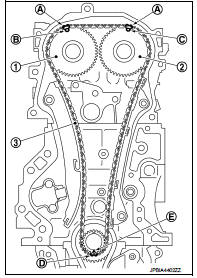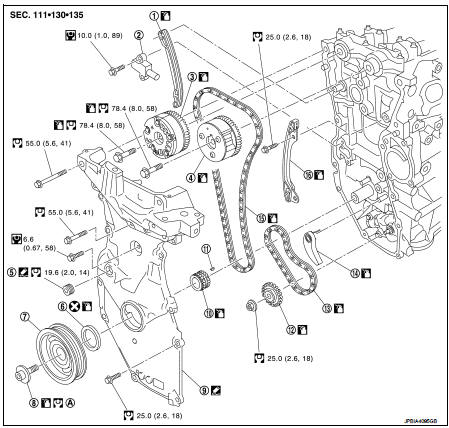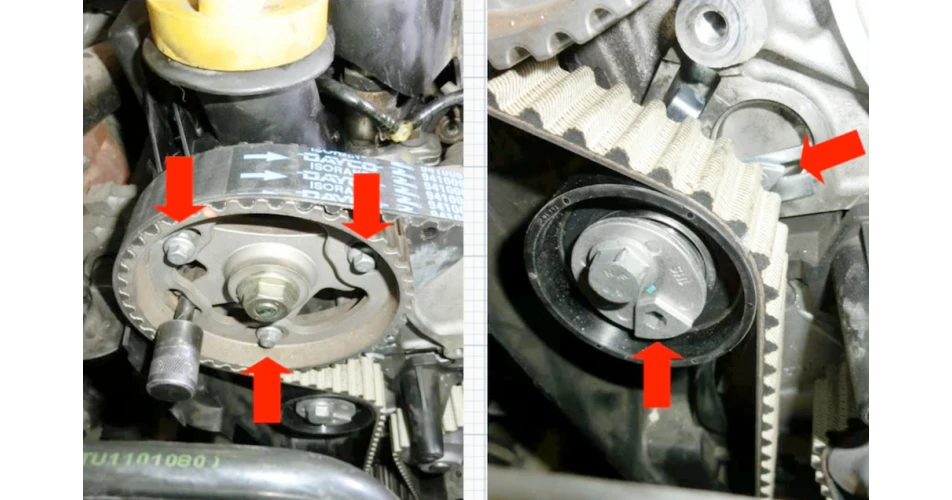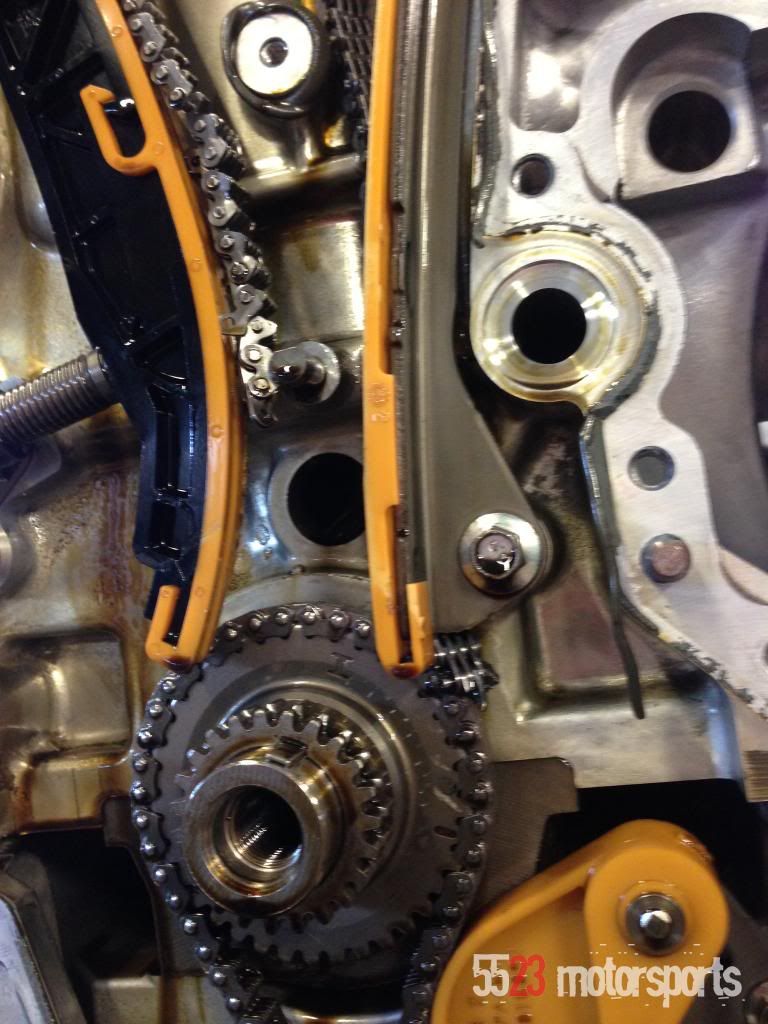The Nissan Juke Timing Chain: The One Problem Everyone Has
The Nissan Juke, with its quirky styling and surprisingly zippy performance, has carved a niche for itself in the compact SUV market. However, behind its distinctive exterior lies a common headache for many owners: the timing chain. This article dives deep into the Nissan Juke timing chain issue, exploring its causes, symptoms, and what you can do about it. If you’re a current Juke owner or considering buying one, this is essential reading.
What is a Timing Chain and Why is it Important?
Before we get into the Juke’s specific issues, let’s understand the fundamentals. The timing chain is a critical component of your vehicle’s engine. It’s a robust, chain-like mechanism (akin to a bicycle chain) that synchronizes the rotation of the crankshaft (which moves the pistons) and the camshaft (which opens and closes the valves). This precise timing is essential for the engine to function correctly, allowing for efficient combustion and preventing catastrophic engine damage.
Unlike a timing belt, which is typically made of rubber and requires periodic replacement, a timing chain is designed to last the lifespan of the engine. However, in the Nissan Juke, this hasn’t always been the case.
The Nissan Juke Timing Chain Problem: What Goes Wrong?
The primary issue with the Nissan Juke’s timing chain stems from premature wear and stretching. This stretching can cause:
- Timing Retardation: The chain stretches over time, altering the precise timing of the valves and pistons.
- Increased Noise: A stretched or worn timing chain can rattle and clatter, especially at cold starts or idle.
- Engine Misfires: Incorrect timing can lead to misfires, rough idling, and reduced engine performance.
- Potential Engine Damage: In severe cases, a severely stretched or broken timing chain can lead to significant engine damage, including bent valves and piston damage, requiring costly repairs or even engine replacement.
- Oil Starvation: In some instances, the chain tensioner, which keeps the chain taut, fails, contributing to the problem. This can further lead to oil starvation, which can damage the engine.
Identifying the Symptoms: Is Your Juke’s Timing Chain in Trouble?
Catching the problem early can save you significant expense and prevent more severe engine damage. Here are the telltale signs your Nissan Juke might be suffering from timing chain issues:
- Rattling or Clattering Noise: This is often the most prominent symptom, especially on cold starts. The noise may sound like a metallic rattle or a diesel-like clatter emanating from the engine.
- Check Engine Light: The check engine light may illuminate, often accompanied by fault codes related to camshaft or crankshaft position sensors.
- Rough Idling or Stalling: The engine may run roughly, hesitate, or stall, particularly at idle.
- Loss of Power: You might notice a decrease in engine performance and acceleration.
- Difficulty Starting: The engine may crank but fail to start, or it may take longer to start than usual.
- Metal Shavings in the Oil: If you change your oil and find metal shavings, it could indicate severe wear on the timing chain components.
Common Causes of Timing Chain Failure in the Juke
Several factors contribute to the premature failure of the timing chain in the Nissan Juke:
- Poor Oil Quality or Infrequent Oil Changes: Using the wrong type of oil or neglecting regular oil changes can lead to increased wear and tear on the chain and related components.
- Manufacturing Defects: Some early Juke models may have had inherent manufacturing flaws in the timing chain or related components.
- Driving Habits: Aggressive driving and frequent high-RPM operation can put extra stress on the timing chain.
- Tensioner Failure: The hydraulic tensioner, which keeps the chain taut, can fail, exacerbating the problem.
What Can You Do If Your Juke Has a Timing Chain Problem?
If you suspect a timing chain issue, prompt action is crucial. Here’s what you should do:
- Get a Diagnosis: Have a qualified mechanic diagnose the problem. They can use diagnostic tools and inspections to confirm the issue and determine the extent of the damage.
- Consider Replacement: In most cases, replacing the timing chain, tensioner, guides, and potentially the sprockets is necessary.
- Choose Quality Parts: Opt for high-quality replacement parts to ensure longevity.
- Follow Proper Maintenance: Adhere to the recommended oil change intervals and use the correct oil grade for your Juke’s engine.
Preventing Timing Chain Issues: Proactive Steps
While the timing chain problem is a known issue, you can take steps to potentially mitigate the risk:
- Regular Oil Changes: Stick to the manufacturer’s recommended oil change intervals, or even shorten them slightly, especially if you drive in harsh conditions.
- Use the Correct Oil: Always use the oil grade and specification recommended in your owner’s manual.
- Avoid Prolonged High-RPM Operation: While enjoying your Juke’s performance is understandable, avoid frequently pushing the engine to its limits.
- Listen to Your Engine: Pay close attention to any unusual noises or performance issues.
- Consider a Pre-Purchase Inspection: If you’re buying a used Juke, have a mechanic inspect the timing chain and engine.
Conclusion: Addressing the Juke’s Achilles Heel
The Nissan Juke’s timing chain issue is a well-documented problem that can cause significant headaches for owners. By understanding the causes, symptoms, and preventative measures, you can proactively address this potential issue and protect your investment. Regular maintenance, attentive driving habits, and prompt action when problems arise are key to maximizing the lifespan of your Juke’s engine.
Frequently Asked Questions (FAQs)
1. What years of Nissan Juke are most affected by the timing chain issue?
While the problem can occur in various model years, it’s more commonly reported in the earlier generations of the Juke, particularly from 2011 to 2017. It’s always best to check specific vehicle history reports and consult with a mechanic for the most accurate information.
2. How much does it cost to replace a timing chain in a Nissan Juke?
The cost can vary depending on your location, the mechanic’s rates, and the extent of the work required. However, you can generally expect to pay between $800 and $2,000 for the timing chain replacement, including parts and labor. It’s always best to get a quote from a local mechanic.
3. Can I replace the timing chain myself, or should I take it to a mechanic?
Replacing a timing chain is a complex repair that requires specialized tools and mechanical expertise. Unless you have significant experience working on engines, it’s highly recommended to have a qualified mechanic perform the replacement.
4. Will a new timing chain fix all the problems?
Replacing the timing chain will address the primary issue. However, if engine damage has already occurred (e.g., bent valves, damaged pistons), additional repairs may be necessary. It’s essential to have a thorough inspection of the engine after the timing chain replacement.
5. Does the timing chain issue affect all Jukes?
No, not all Jukes will experience this problem. However, it is a common issue, and many owners will eventually need to address it. Regular maintenance and attentive driving habits can help to mitigate the risk of premature failure.




